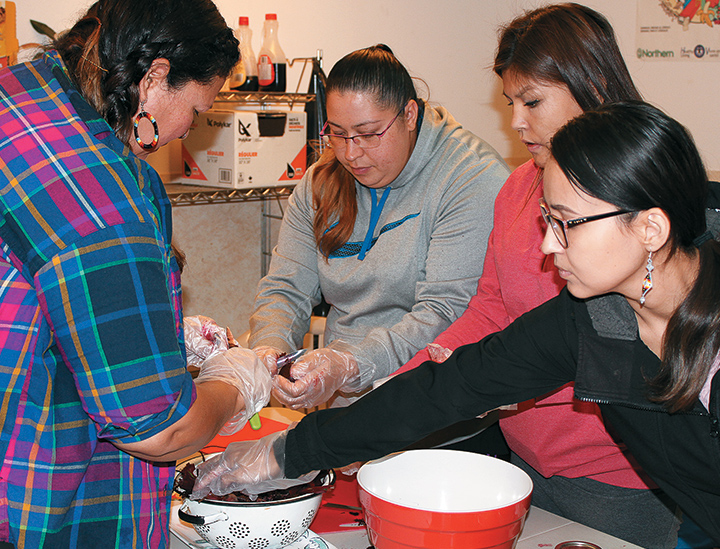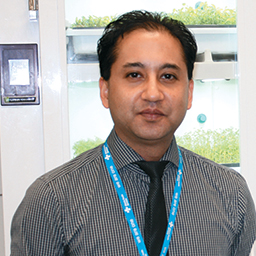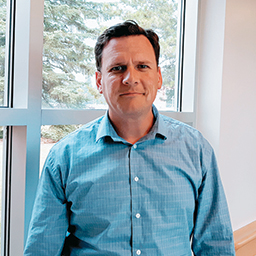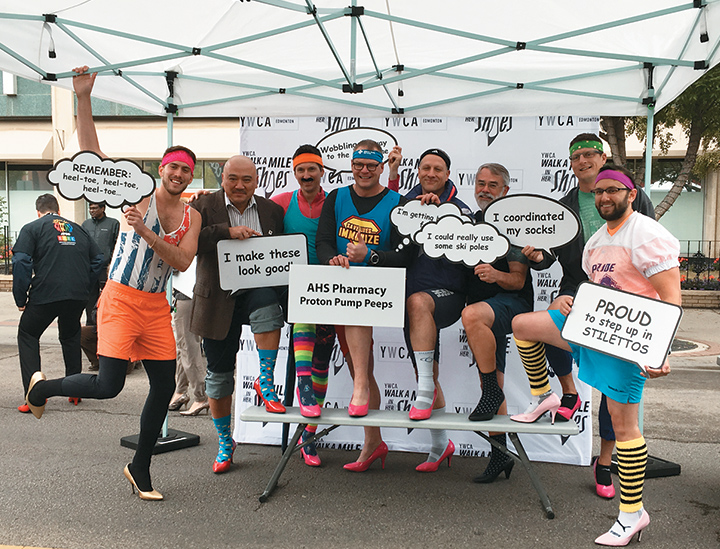Karis Potts-Chief’s grocery shopping now takes place in a lush garden.
The establishment of a community garden on Montana First Nation near Ponoka has given moms-to-be like Potts-Chief access to fresh produce mere minutes from home.
“I’ve never gardened before and everything tastes so much better,” says the 19-year-old who is pregnant with her first child. “The closest grocery store is about 20 minutes away in Ponoka but now I can just walk down the road.”
The garden was established in June 2017, when the Alberta Health Services’ (AHS) Maternal Newborn Child and Youth Strategic Clinical Network (MNCY SCN) asked community members how they could support maternal health in the area.
Community members provided their input and ideas for the garden during a community engagement meeting. They chose a site next to the Montana Band Office and, through a grant from Merck for Mothers and Alberta Innovates, they purchased supplies and hired Erik Lee as community gardener.
Lee built raised beds that make the garden more accessible to pregnant moms and protect the plot from gophers. The wide variety of plants—potatoes, peppers, squash, tomatoes, lettuce, cabbage, cauliflower, beets, herbs, kale and a variety of fruit-bearing plants—are used in workshops teaching families how to harvest produce and prepare salads, jams, and pickled vegetables.
“Food is security,” says Dr. Richard Oster, MNCY SCN senior project manager. “Beyond the nutritional and physical benefits, the garden is a space that brings people together. Anyone can drop in—elders, families, kids, moms and dads—to gain cultural, spiritual and social support.”
Montana First Nation intends to expand and improve the garden, and the MNCY SCN plans to work with other Maskwacis communities to establish more gardens.
“This community has had a lot of struggle and sometimes pregnancy outcomes aren’t always the best,” says Oster. “The garden will help support healthy moms and healthy babies, and a healthy community.”


This is good, viable food that would have otherwise ended up in the trash but, instead, it goes to people who really need it.
Michael Khan, environmental public health officer for AHS in Edmonton Zone, on Second Helping, a prepared and perishable food recovery program that accepts wholesome surplus food donated by cafeterias, restaurants, hotels and institutions and delivers them to agencies supported by the food bank

It can be difficult to access opioid replacement therapy outside of larger urban centres; however we are able to help eliminate barriers to care by providing videoconferencing sessions between physicians and patients in remote areas.
Dr. Nathaniel Day, medical lead for the Rural Opioid Dependency Program, which has been expanded to 10 communities throughout central Alberta
I knew I was having a new patient who was a Bhutanese refugee. So I phoned the Language Line before the client got there. I was asked what language I needed, and the next thing I knew, a person came on the line who speaks Nepalese.
Monique Bailey, a registered nurse with the Alberta Healthy Living Program at Chinook Regional Hospital in Lethbridge, on the Language Line, AHS’ telephone interpretation services

Domestic violence is so widespread; the more you talk to people, the more you realize that its impacts are felt everywhere.
Peter Macek, clinical practice leader for AHS Pharmacy Services, on wearing hot pink heels and participating in the YWCA Walk a Mile in Her Shoes, an annual fundraiser that asks men to take a stand to help break the cycle of domestic violence. The team, AHS Pharmacy Proton Pump Peeps, is pictured above
There are 12 Health Advisory Councils (HACs) across the province comprised of voluntary members who support the strategic direction of AHS by getting feedback from community members on what is working well in the health system and areas in need of improvement.
There are three Provincial Advisory Councils (PACs), including Addiction and Mental Health, Cancer, and Seniors and Continuing Care. They are made up of volunteers, subject matter experts and leaders. Their role is to consider and provide evidence-based suggestions to AHS, identify existing and emerging issues, and advise on ways to improve quality, access and sustainability of services.
The Wisdom Council provides guidance and recommendations on health service delivery, program design and evaluation for Indigenous Peoples in Alberta.
AHS partners with 69 foundations and trusts in Alberta, whose work makes a significant impact on local health delivery by funding vital needs, programs, renovations, research and education.
This campaign occurs each fall and offers employees, physicians and volunteers a fun opportunity to raise funds to help families in Alberta.